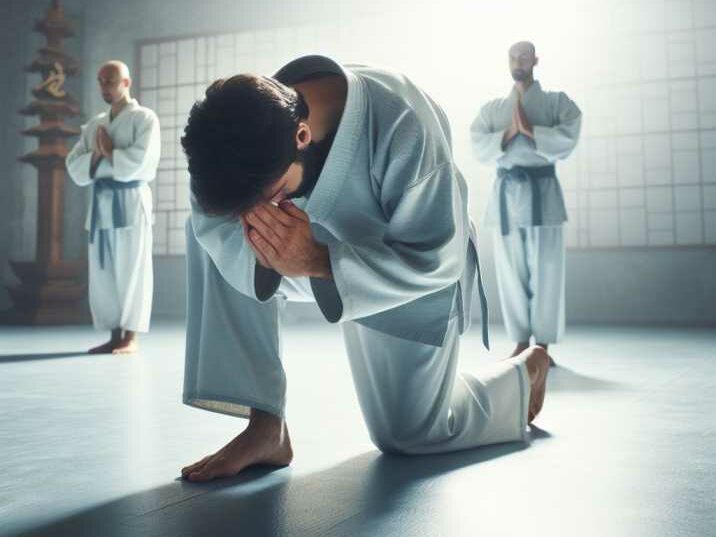Introduction:
Table of Contents
Kung Fu, a martial art originating from China, is renowned for its dynamic movements and breathtaking techniques. However, beneath the surface lies a profound philosophy that emphasizes not only physical prowess but also inner strength and humility. In this article, we delve into the fascinating connection between Kung Fu Training cultivates humility and Inner strength.
Understanding Humility in Kung Fu:
What is Humility?
Humility is the quality of being humble, modest, and respectful. It involves acknowledging one’s limitations and recognizing the contributions of others.

Kung Fu Training Cultivates Humility:
Kung Fu training cultivates humility in practitioners through several key aspects:
- Discipline and Respect: In traditional Kung Fu training, respect for one’s instructors, fellow students, and the art itself is paramount. This fosters a humble attitude and teaches practitioners to approach learning with an open mind.
- Embracing Failure: Kung Fu requires dedication and perseverance. Practitioners often face setbacks and failures in their training journey. Instead of becoming discouraged, they learn to embrace these challenges as opportunities for growth, humbly accepting their mistakes and striving to improve.
- Focus on Continuous Learning: A fundamental principle of Kung Fu is the belief that learning is a lifelong journey. Regardless of skill level, practitioners are encouraged to remain humble and approach each training session with a beginner’s mindset, eager to learn and improve.
- Service and Community: Many Kung Fu schools emphasize the importance of giving back to the community and helping others. Engaging in acts of service fosters humility by reminding practitioners of the interconnectedness of all beings and the importance of selflessness.
The Benefits of Humility in Kung Fu:
- Inner Peace: Cultivating humility through Kung Fu training leads to greater inner peace and contentment. By letting go of ego and embracing humility, practitioners develop a sense of harmony within themselves and their surroundings.
- Improved Relationships: Humility fosters better relationships with others by promoting empathy, understanding, and cooperation. In Kung Fu, practitioners learn to treat others with kindness and respect, creating a supportive community.
- Resilience and Adaptability: Humble practitioners are more resilient in the face of challenges. They are able to adapt to new situations with grace and humility, overcoming obstacles with determination and perseverance.

Table of Information Kung Fu training cultivates humility:
| Aspect | Description |
|---|---|
| Humility in Kung Fu | The importance of humility in Kung Fu training and its impact on character development. |
| Key Principles | Discipline, respect, continuous learning, and service as fundamental principles of Kung Fu. |
| Benefits of Humility | Inner peace, improved relationships, resilience, and adaptability as benefits of humility. |
Conclusion:
In conclusion, Kung Fu training cultivates humility and inner strength. Kung Fu training is not just about physical strength and agility; it is also a journey of self-discovery and personal growth. Through disciplined practice and adherence to its core principles, practitioners learn the invaluable lesson of humility, which serves as a foundation for a fulfilling and meaningful life.
FAQs:
- Does Kung Fu training only focus on physical skills? No, Kung Fu training encompasses physical, mental, and spiritual development. It emphasizes character-building qualities such as discipline, humility, and respect.
- Can anyone practice Kung Fu, regardless of age or fitness level? Yes, Kung Fu is accessible to people of all ages and fitness levels. There are various styles and techniques that can be adapted to suit individual abilities.
- How long does it take to master Kung Fu? Mastery of Kung Fu is a lifelong journey. Progression varies depending on factors such as dedication, practice consistency, and natural aptitude.
- Is Kung Fu only about self-defense? While self-defense is an integral aspect of Kung Fu, its benefits extend far beyond physical combat. Kung Fu promotes holistic well-being, including mental clarity, emotional resilience, and spiritual growth.
- Can Kung Fu training be done alone, or is it necessary to join a school? While self-practice can be beneficial, joining a reputable Kung Fu school provides structured guidance, instruction, and a supportive community essential for growth and progress.


